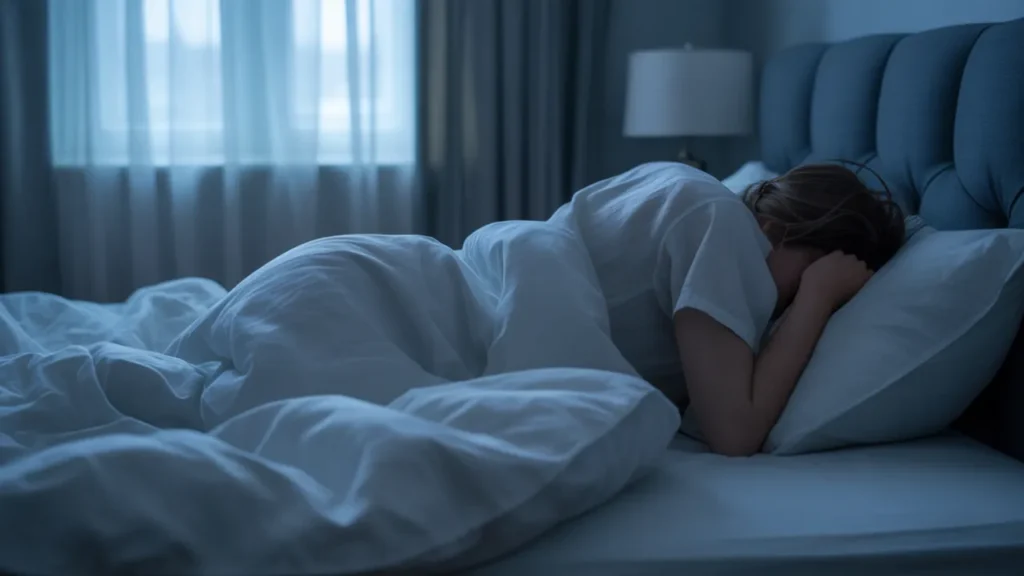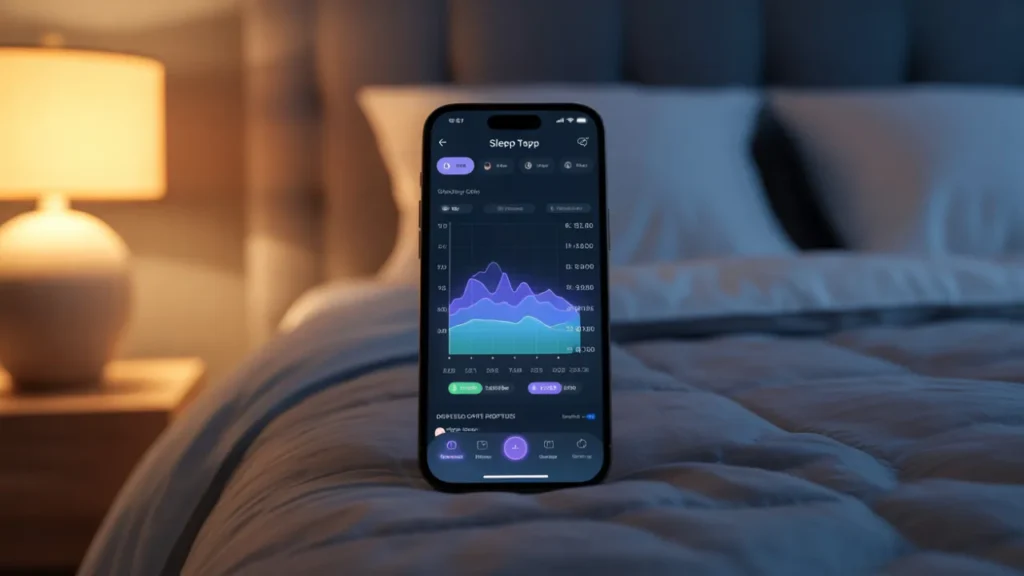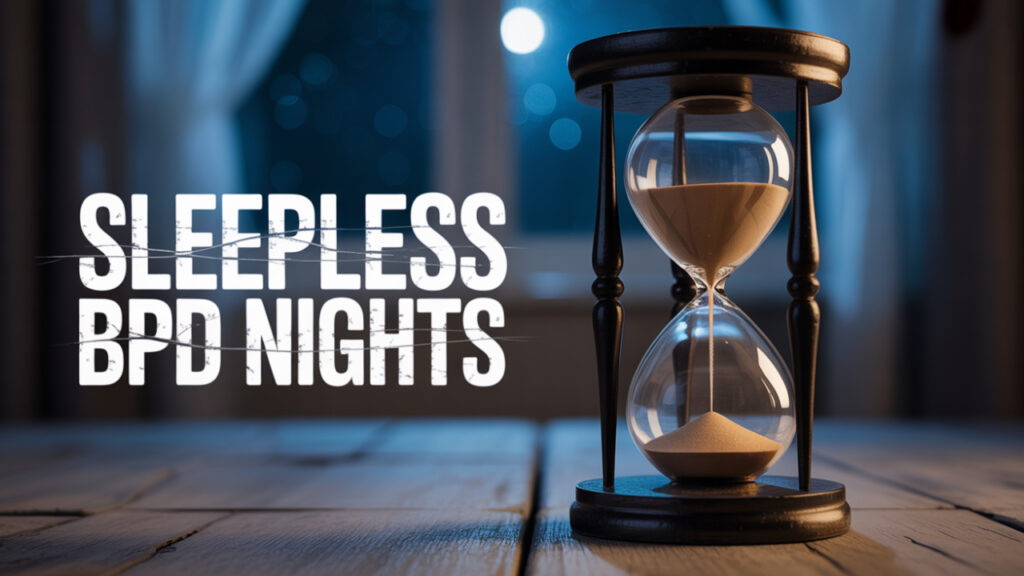BPD and Insomnia
Borderline personality disorder (BPD) and insomnia are often linked through a complex mix of emotional, behavioral, and neurological factors. Sleep problems can intensify symptoms like impulsivity, emotional dysregulation, and mood instability. Many patients with BPD also experience anxiety, depression, and chronic stress, which disrupt natural sleep patterns.
Understanding the correlation between BPD and insomnia is critical for both patients and mental health professionals. Disrupted sleep increases the risk of suicidal ideation, substance dependence, and worsening mental health. In treatment settings, sleep quality is often considered a vital sign for overall health.

How BPD Affects Sleep
Borderline personality disorder impacts sleep through changes in emotion regulation, cognition, and arousal. People with BPD often have heightened fear responses, frequent nightmares, and increased sleep onset latency. Rapid eye movement sleep can also be altered, which affects dream patterns and emotional processing.
Emotional dysregulation and chronic stress may cause difficulty in winding down at bedtime. Patients might also experience abandonment fears or paranoia, leading to late-night rumination. This emotional activation can interfere with the natural circadian rhythm and prolong sleep deprivation.
The Role of Insomnia in BPD Symptoms
Insomnia in BPD can worsen mood disorders such as major depressive disorder. The link between poor sleep and increased emotional instability is well-documented in psychiatry and psychology research. Systematic review data show a high prevalence of insomnia treatment among those with personality disorders.
Poor sleep efficiency can lead to hypersomnia episodes, fatigue, and reduced attention during the day. This sleep disturbance may also heighten impulsivity and risky behavior. Over time, the cycle of insomnia and mood dysregulation becomes self-reinforcing.
Understanding the Causality and Comorbidity
The causality between BPD and insomnia is not one-directional. Comorbidity with anxiety disorders, depression, and schizophrenia can further complicate diagnosis. These conditions can influence sleep state misperception and alter actigraphy readings.
Substance abuse, alcohol use, and eating disturbances often contribute to chronic sleep problems. Patients with substance dependence may have altered breathing patterns during sleep, increasing arousal frequency and disrupting deep stages of rest. Polysomnography often reveals irregularities that align with emotional and cognitive patterns in BPD.
Measuring and Tracking Sleep
Accurate diagnosis often involves tools like polysomnography, actigraphy, and a sleep diary. Tracking sleep onset, latency, and efficiency provides valuable data for treatment planning. Mental health professionals may also measure dream recall and nightmare frequency to understand emotional processing during sleep.
Sleep state misperception can occur when a patient feels they slept less than they actually did. This perception impacts mood, stress regulation, and overall quality of life. Awareness of these patterns helps both the patient and clinician improve adherence to treatment.

Risk Factors and Vulnerabilities
BPD patients face unique risk factors for insomnia, including high emotional sensitivity, instability in relationships, and vulnerability to chronic stress. Abandonment fears and heightened arousal can delay sleep onset and increase nighttime awakenings.
Shift work, irregular bedtime routines, and lack of sleep hygiene can worsen symptoms. Changes in circadian rhythm due to work or lifestyle can create a cycle of poor regulation and increased distress. The prevalence of insomnia is significantly higher in this population compared to the general public.
Coping Strategies for Better Sleep
Improving sleep hygiene is one of the first steps. This includes consistent bedtime routines, reduced screen use before sleep, and creating a calming environment. Stress management techniques such as meditation, guided imagery, and breathing exercises can reduce arousal.
Therapy is a key component. Dialectical behavior therapy (DBT) can help with distress tolerance, emotion regulation, and coping skills. Adherence to therapy goals often improves sleep efficiency and reduces latency.
Treatment Approaches in Psychiatry and Psychology
Treatment may include both psychological and medical interventions. A mental health professional may recommend therapy to address emotional dysregulation and comorbid mood disorders. DBT and cognitive-behavioral strategies are particularly effective for improving sleep-related behavior.
In some cases, psychiatry may prescribe antipsychotic or mood-stabilizing medications. This can help regulate mood, decrease impulsivity, and improve sleep onset. However, medication should be carefully monitored due to the risk of dependency, side effects, and interaction with substances like alcohol.
The Impact of Substance Use
Substance abuse and alcohol can severely disrupt sleep quality. These substances alter circadian rhythm, reduce REM sleep, and increase arousal frequency. For BPD patients with substance dependence, the combination of emotional instability and poor sleep significantly affects quality of life.
Reducing or eliminating substance use is essential for improving sleep health. Support from therapy, coping strategies, and professional treatment can improve both mental health and sleep patterns. Patients in recovery often notice a significant reduction in nightmares and fatigue.

Addressing Chronic Stress and Emotional Triggers
Chronic stress can maintain insomnia by keeping the mind in a heightened state of arousal. Emotional triggers related to fear, abandonment, or instability may cause repeated nighttime awakenings. Guided imagery, meditation, and relaxation techniques help reduce this hyperarousal.
Parents of patients with BPD may play a role in supporting stress management strategies. Education on bedtime routines, sleep hygiene, and emotional regulation can help improve adherence to healthy habits. Over time, this support can reduce vulnerability to sleep disturbances.
Managing Nightmares and Dreams
Nightmares are common among BPD patients, often tied to trauma or emotional distress. Rapid eye movement sleep disruptions can lead to more intense dreams and increased distress upon waking. Tracking dream frequency in a sleep diary can reveal patterns linked to mood and stress.
Therapeutic interventions may focus on imagery rehearsal therapy or mindfulness before bed. These practices can help reduce nightmare frequency and improve overall sleep quality. Improving dream regulation can also positively impact daytime mood and behavior.
BPD Treatment Options
Borderline personality disorder treatment often involves therapy as the primary approach. DBT is one of the most effective methods, teaching skills for distress tolerance, emotional regulation, and interpersonal effectiveness. Many patients also benefit from mindfulness-based strategies to reduce impulsivity and stabilize mood.
Psychiatry may recommend medications when comorbid conditions like major depressive disorder or anxiety disorder are present. These can help balance mood, improve sleep patterns, and support overall health. Long-term success often comes from combining therapy with healthy lifestyle changes and strong coping strategies.
Dual Diagnosis and Sleep
BPD is frequently part of a dual diagnosis, where a personality disorder co-occurs with another mental health or substance use disorder. Insomnia is often a shared symptom between these conditions, complicating treatment and recovery. Patients may face challenges in maintaining adherence to therapy while managing multiple diagnoses.
Dual diagnosis treatment requires integrated care that addresses both disorders at the same time. This approach can reduce relapse risk, improve emotional stability, and enhance sleep quality. Treating both the mental health condition and the sleep disturbance together leads to better outcomes.
Long-Term Outlook
Improving sleep in BPD requires a multifaceted approach. Addressing comorbidity, substance use, and stress is essential. Consistent adherence to therapy, psychiatry recommendations, and lifestyle changes increases the likelihood of better sleep and improved mental health.
The relationship between sleep and BPD symptoms is deeply interconnected. Better sleep improves cognition, emotion regulation, and quality of life. With the right combination of therapy, coping skills, and medical support, patients can break the cycle of insomnia and mood instability.
How Revival Mental Health Can Help
Revival Mental Health offers specialized treatment programs for borderline personality disorder and related sleep disorders like insomnia. Our clinicians integrate therapy, psychiatry, and evidence-based sleep interventions to help patients improve both emotional regulation and rest quality. We use tools like sleep diaries, actigraphy, and cognitive-behavioral methods to target the root causes of sleep problems.
Our dual diagnosis programs address substance dependence, mood disorders, and anxiety alongside BPD. By combining dialectical behavior therapy with sleep hygiene education, coping strategies, and guided imagery, we help patients reduce arousal, improve circadian rhythm stability, and enhance overall quality of life. Every treatment plan is designed to help patients achieve lasting mental health and better sleep.
Final Thoughts
BPD and insomnia share a complex correlation rooted in emotional, behavioral, and physiological processes. Each affects the other, creating a cycle that impacts mental health and daily functioning. Through therapy, improved sleep hygiene, and medical care, patients can reduce insomnia symptoms and stabilize mood.
Revival Mental Health offers specialized therapy programs for borderline personality disorder that also address insomnia. Our team combines psychiatry, psychology, and evidence-based interventions to improve sleep and overall health. Better nights can lead to better days.
FAQs
1. Can lifestyle changes alone improve BPD-related insomnia? Some patients experience improvement through consistent sleep hygiene, stress reduction, and a stable bedtime routine. However, therapy is often needed for lasting results.
2. How does DBT help with sleep in borderline personality disorder? DBT helps regulate emotions, reduce nighttime arousal, and improve distress tolerance. This can make it easier to fall asleep and stay asleep.
3. Are sleep medications safe for people with BPD? Sleep medications may be prescribed but should be used cautiously due to risks of dependency and interactions with other treatments or substances.
4. Does improving sleep help reduce impulsive behavior in BPD? Yes. Better sleep improves mood regulation, cognition, and emotional control, which can reduce impulsivity and risky behaviors.





